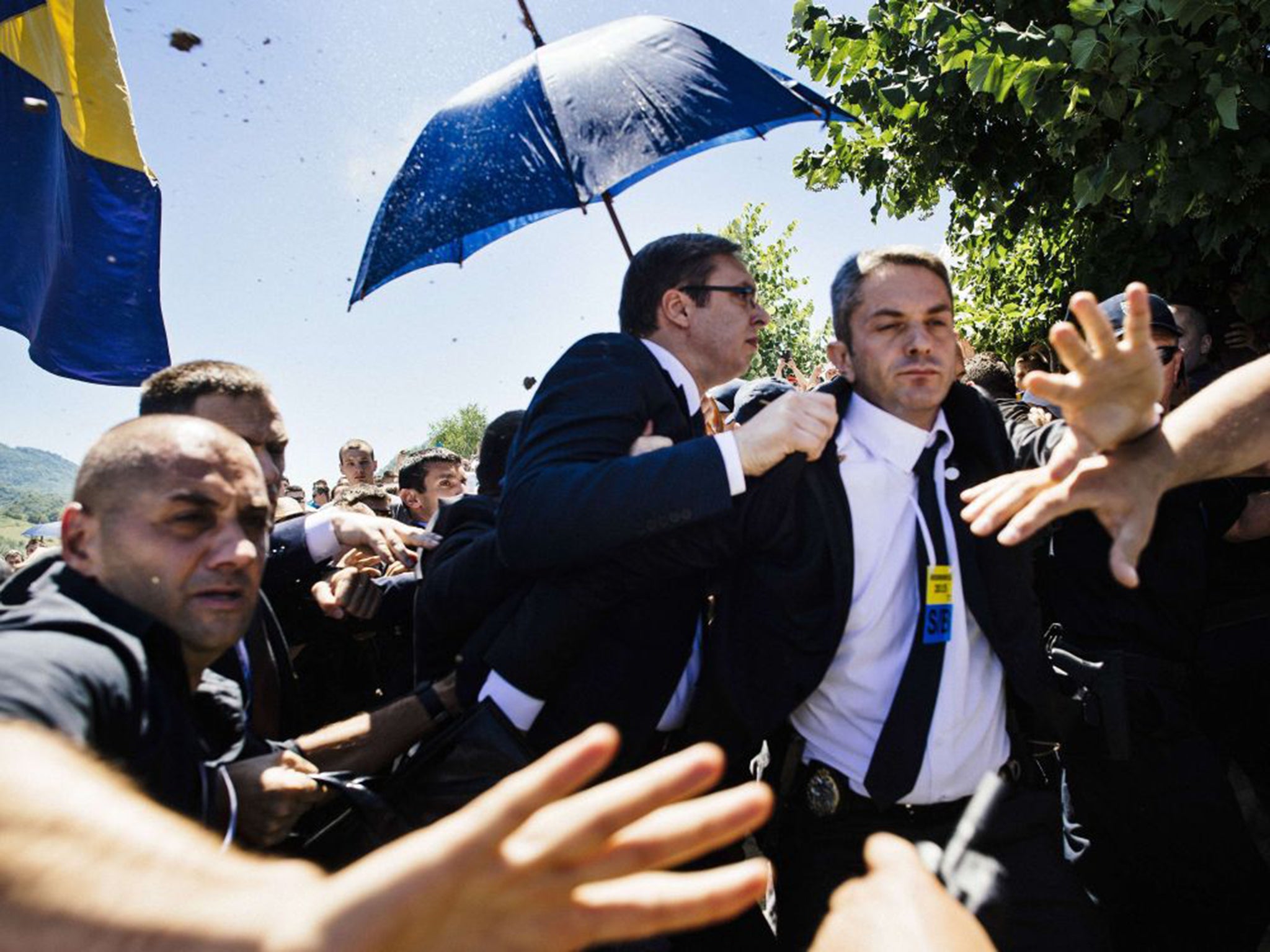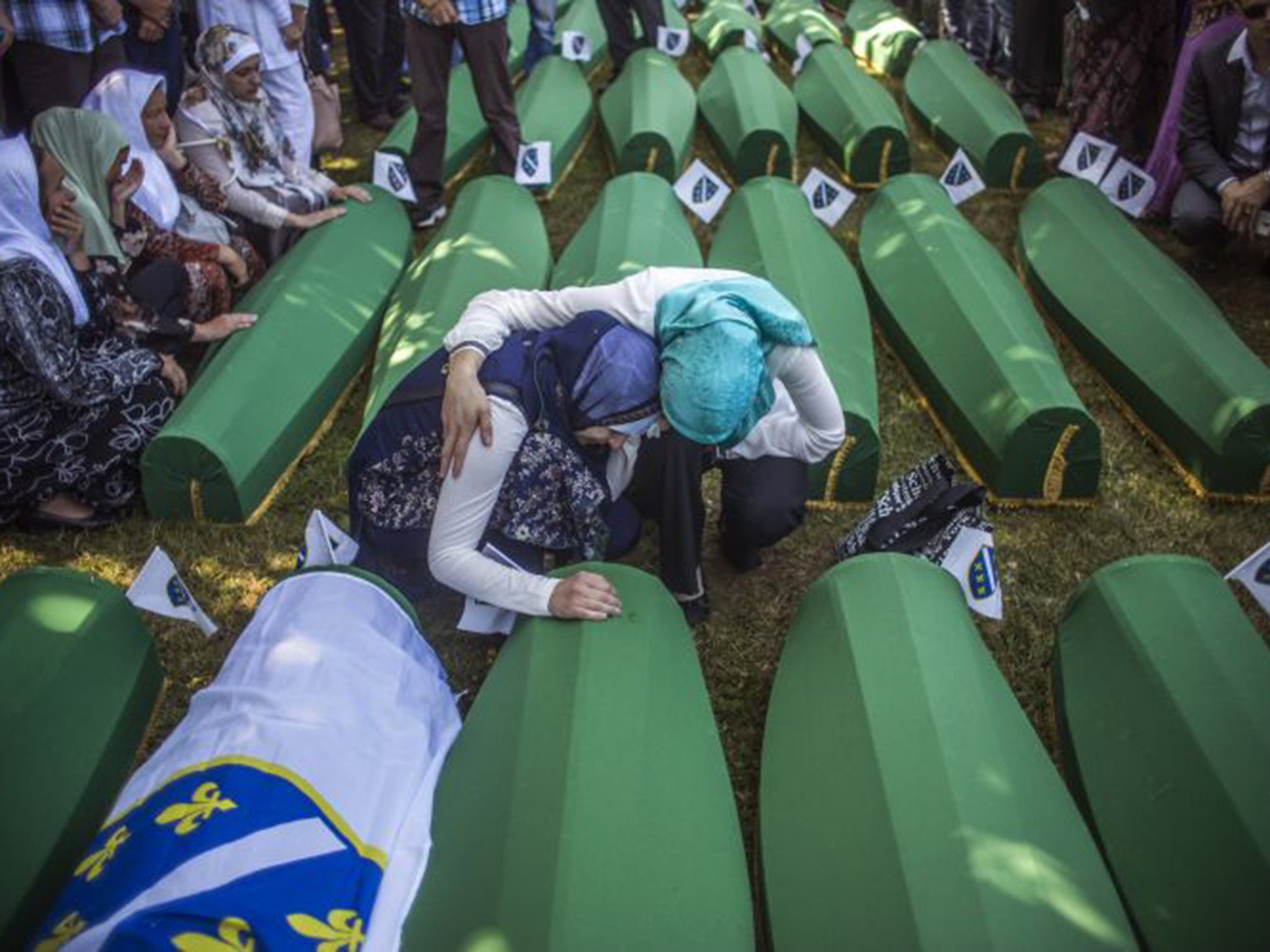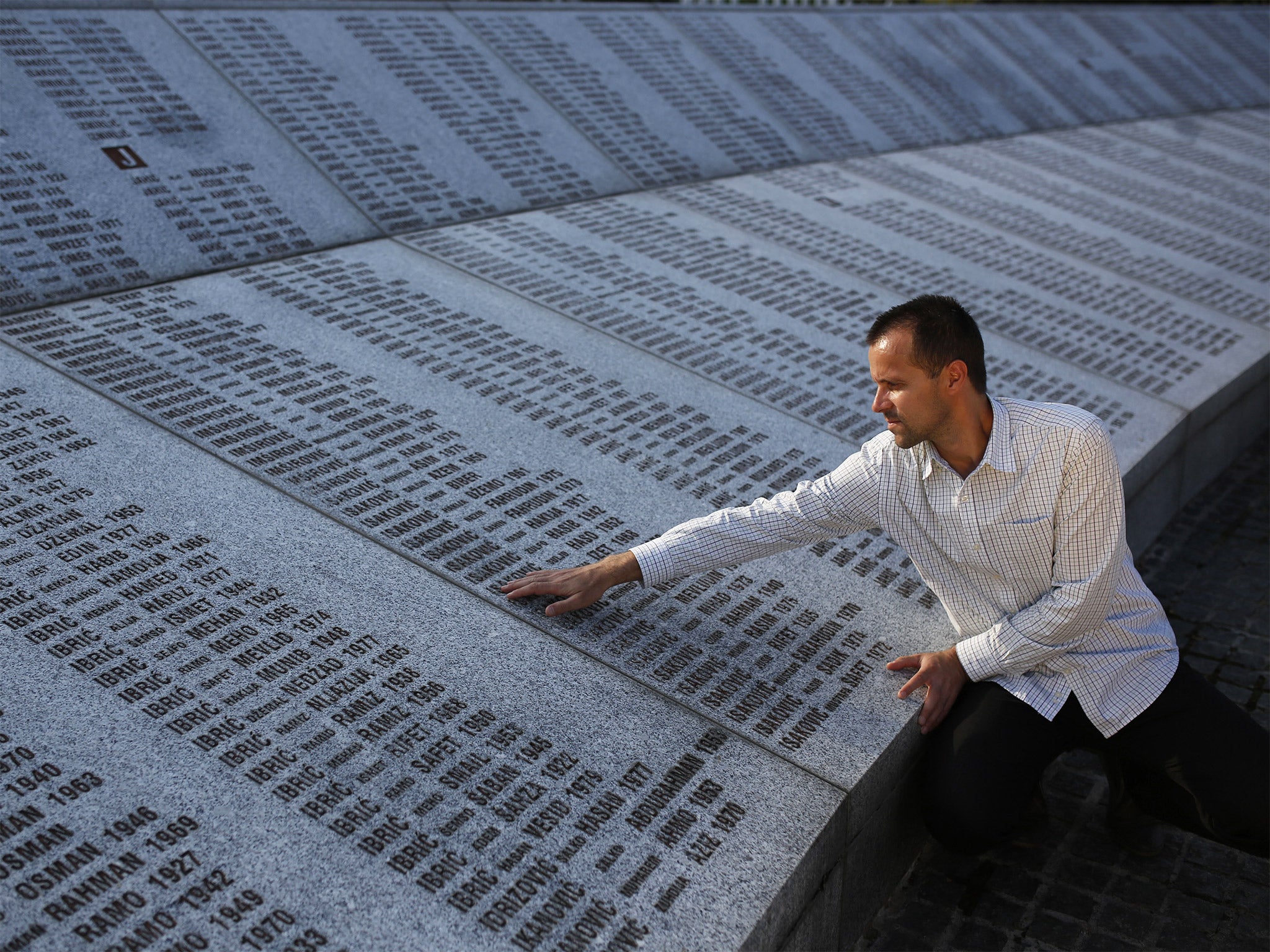Srebrenica memorial: Angry protest mars burial of massacred Muslims
At the 20th anniversary of the Srebrenica massacre, Bosnian mourners show fury at Serbian PM’s attendance and his denial that the atrocity was genocide

Your support helps us to tell the story
From reproductive rights to climate change to Big Tech, The Independent is on the ground when the story is developing. Whether it's investigating the financials of Elon Musk's pro-Trump PAC or producing our latest documentary, 'The A Word', which shines a light on the American women fighting for reproductive rights, we know how important it is to parse out the facts from the messaging.
At such a critical moment in US history, we need reporters on the ground. Your donation allows us to keep sending journalists to speak to both sides of the story.
The Independent is trusted by Americans across the entire political spectrum. And unlike many other quality news outlets, we choose not to lock Americans out of our reporting and analysis with paywalls. We believe quality journalism should be available to everyone, paid for by those who can afford it.
Your support makes all the difference.Bodyguards whisked Aleksandar Vucic, a hardline nationalist during the Yugoslav wars of the 1990s, through a jostling crowd which shouted and booed. Some, throwing stones and bottles, surged up a hill behind his delegation as it ran for cover.
Tens of thousands had gathered to commemorate the worst atrocity on European soil since the Second World War, in which some 8,000 Muslim men and boys were massacred after the designated UN safe haven of Srebrenica fell to Bosnian Serb forces in the closing months of the 1992-95 war.
Serbia had backed the Bosnian Serbs with men and money.
Mr Vucic came to represent his country in an apparent gesture of reconciliation. But a few people carried banners with his own wartime quote: “For every Serb killed, we will kill 100 Bosniaks.”

More than 1,000 victims have yet to be found. The remains of 136, their coffins draped in green cloth, were interred on 11 July.
Mr Vucic was attending only days after his government enlisted its ally Russia to veto a British-drafted resolution at the United Nations referring to the Srebrenica massacre in 1995 as genocide, as the International Court of Justice has ruled.
Many Serbs dispute the term, the death toll and the official account of what went on, reflecting conflicting narratives about the Yugoslav wars that still feed political divisions.
Serbia said it would send a protest note to Bosnia after the events. “This is a scandalous attack and it can be seen as an assassination attempt,” Serbia’s Interior minister, Nebojsa Stefanovic, said on Serbian Pink television.
In a statement after the incident, Philip Hammond, the Foreign Secretary, welcomed Mr Vucic’s attendance and deplored the behaviour of “a few individuals”.
“Their action should not be allowed to detract from the sentiments felt by a majority; that the countries and peoples of the western Balkans need to move forward together in reconciliation and co-operation,” he added.
Mr Vucic was formerly a disciple of the “Greater Serbia” ideology behind much of the bloodshed that accompanied Yugoslavia’s demise. For years he lionised Ratko Mladic, who as military commander of the Bosnian Serbs led the attack on Srebrenica and is standing trial at the UN court in The Hague.

Mr Vucic has since rebranded himself as pro-Western, embracing the region’s ambitions of joining the European Union.
“Look at him and look at those thousands of tombstones,” said Hamida Dzanovic, who had come to bury two bones identified by DNA as those of her missing husband. “Is he not ashamed to say that this was not genocide? Is he not ashamed to come here?”
Recalling the last time she saw her husband, Ms Dzanovic said: “I remember him returning twice to kiss our children, as if he knew we would never see each other again.”
Dozens of foreign dignitaries – including the Princess Royal, the former US president Bill Clinton, the Turkish Prime Minister Ahmet Davutoglu and Queen Noor of Jordan – came for the ceremony.
(AP, Reuters)
Join our commenting forum
Join thought-provoking conversations, follow other Independent readers and see their replies
Comments